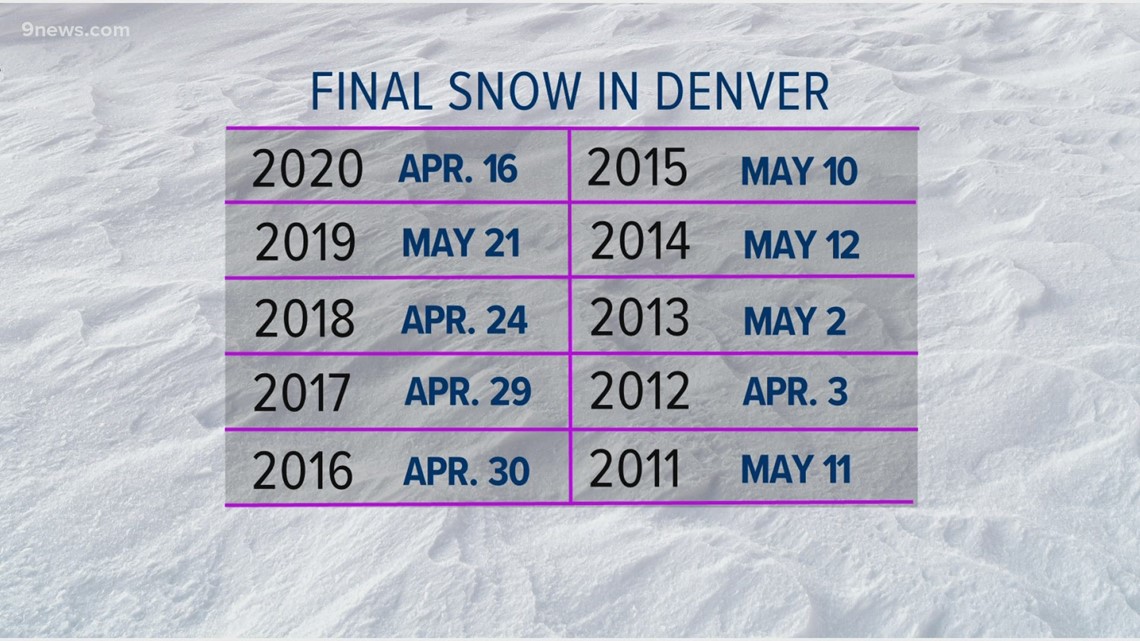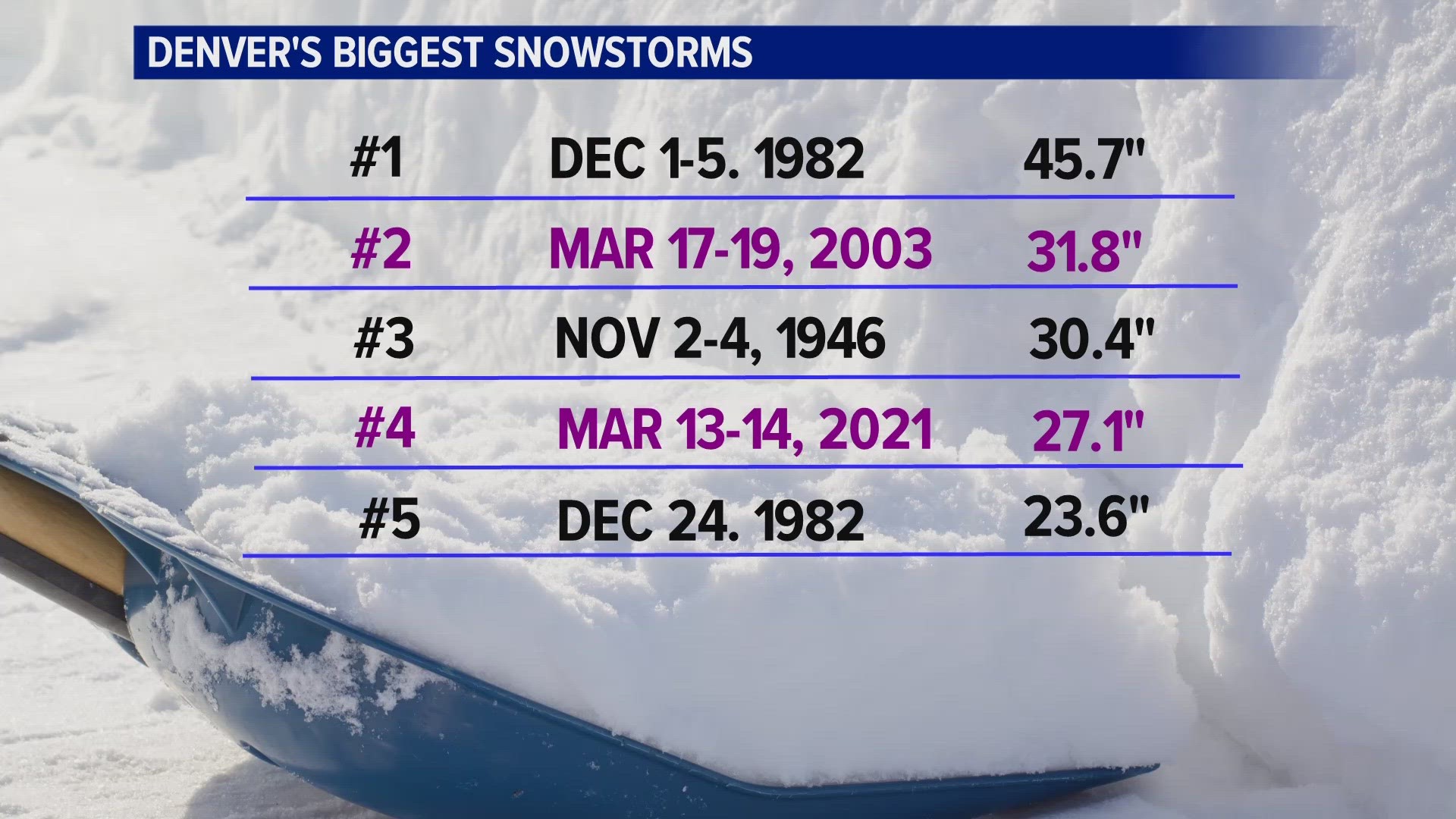DENVER — Before we get into whether or not Denver's seen its last snow of the winter season, let's lay out a few ground rules.
Yes, we're aware it's snowed at (your house) in (May or June) in (the last few years).
Yes, it's only the first week of May.
And yes, we're aware that Mother's Day and even Memorial Day snowstorms feel like a rite of passage around these parts.
But with that all that in mind, there's a decent chance that Denver's seen its last snow of the winter season. Here's why.
Climatology
On average, Denver's last measurable snow (0.1 inches or more) is on April 30, based on 30-year data (1990-2020) at Denver's Central Park weather observation site. The long-term climatological average last measurable snowfall date is also on April 30.
In downtown Denver, the average last measurable snowfall date is April 26.
Surprising, isn't it? In the last four years, two high-profile May Front Range snowstorms might have you thinking that mid or even late May snowstorms are far more common than that.


But in the last 30 years, Denver's had measurable snow in May in 15 of those years – exactly half. Of those 15 years when Denver did get measurable snow in May, eight of those snows came in the first 10 days of May.
So over the last 30 years, Denver's had measurable snow on May 11 or later in just seven of those years – less than one in four times.
Of course, that's just in Denver. In the foothills and along the Palmer Divide, May snow is far more common. That (along with two notable late May snows in the last four years) may make it feel like mid-or-late May snowfalls are par for the course, but they may not be quite as common as you think.
Warm forecast
Then, there's the weather forecast.
For the Denver area, the average of computer forecast models doesn't show a temperature below 43 degrees – that's a high or low temperature – over the next 10 days. Obviously, that's not even remotely close to a cold enough temperature for snowfall.
An omega block weather pattern means that the central U.S. (including eastern Colorado) will probably stay on the drier and warmer side of average over the next 10-14 days, though afternoon showers and storms may periodically soak the ground (especially in the mountains).
And as we already mentioned, once you get past the first 10-14 days of May, snow becomes pretty rare for the Denver metro area.
That doesn't mean it can't or won't get colder or snow. It just means it looks unlikely.
Of course, daring Mother Nature in Colorado with this silly article probably means there's a chance it will make the rounds on social media in the coming weeks.
But the data and the forecast both point to a better than 50-50 chance that you can put away your snow shovel for the winter – at least in Denver's city limits.
SUGGESTED VIDEOS: Colorado Climate

